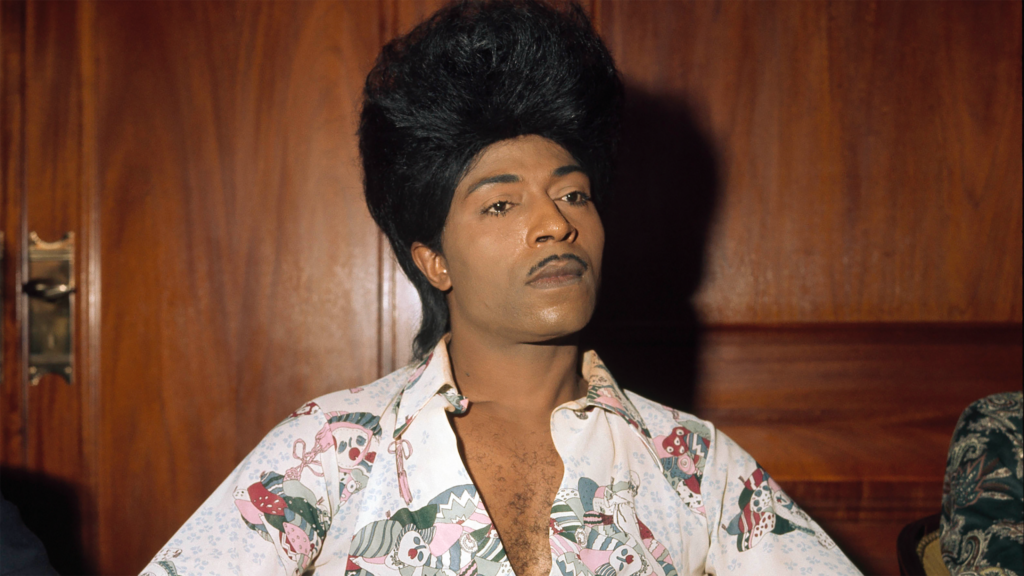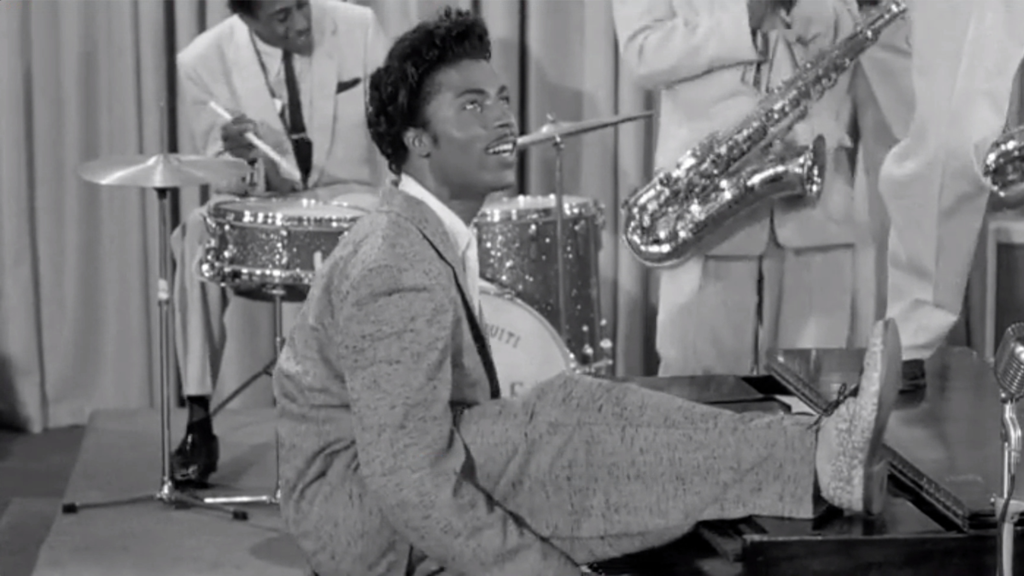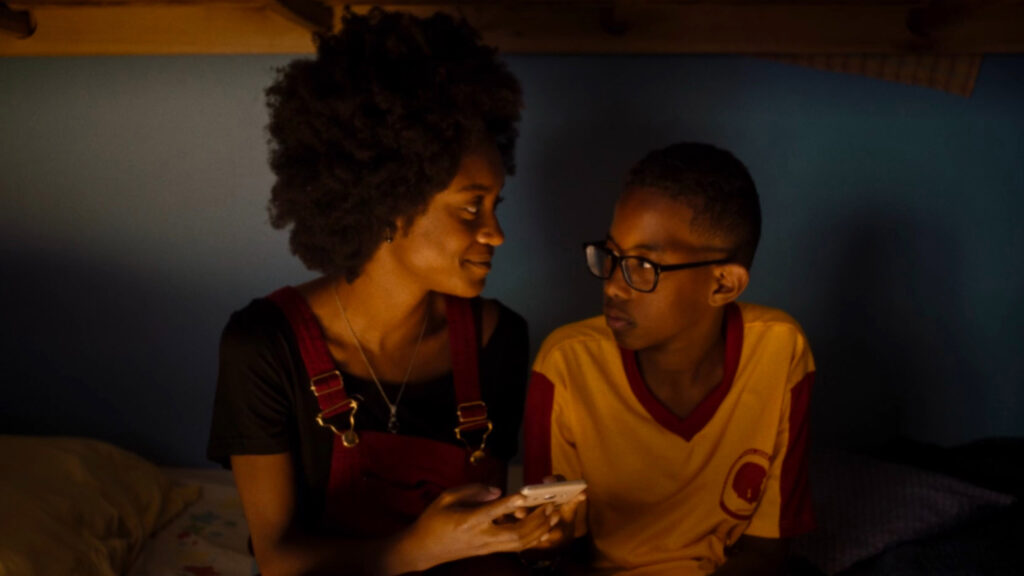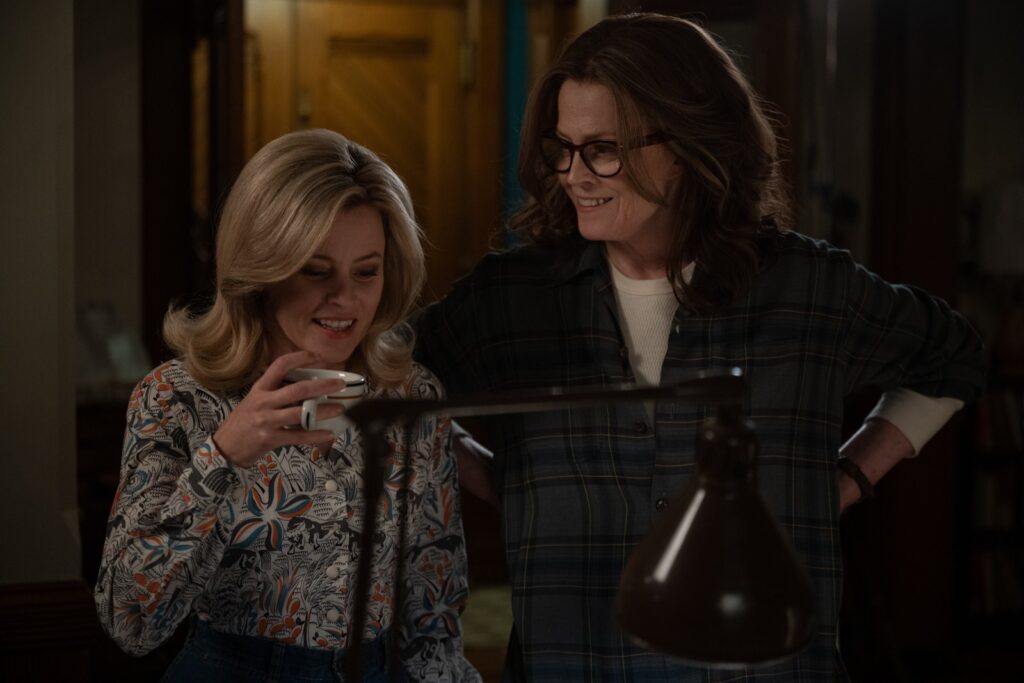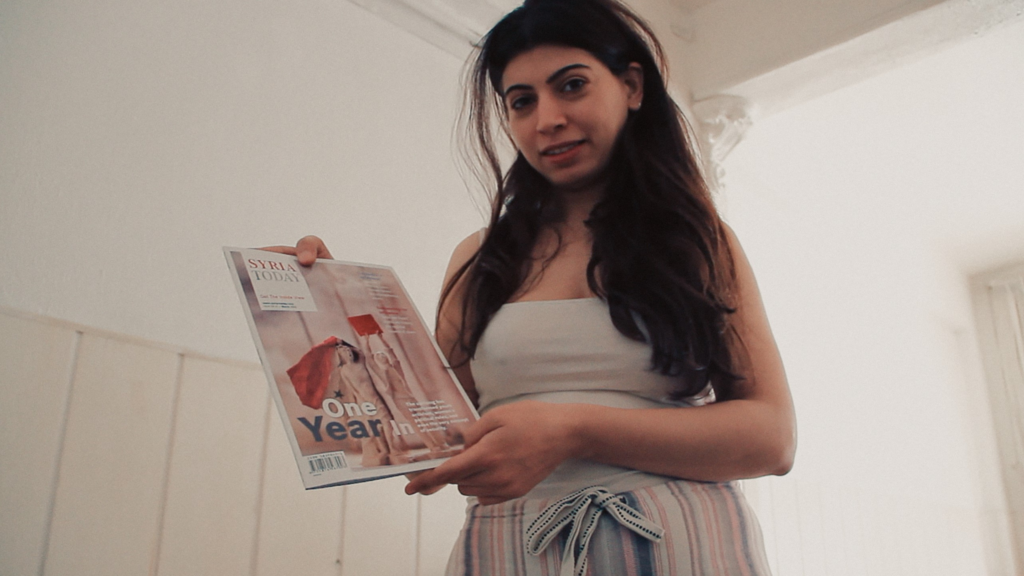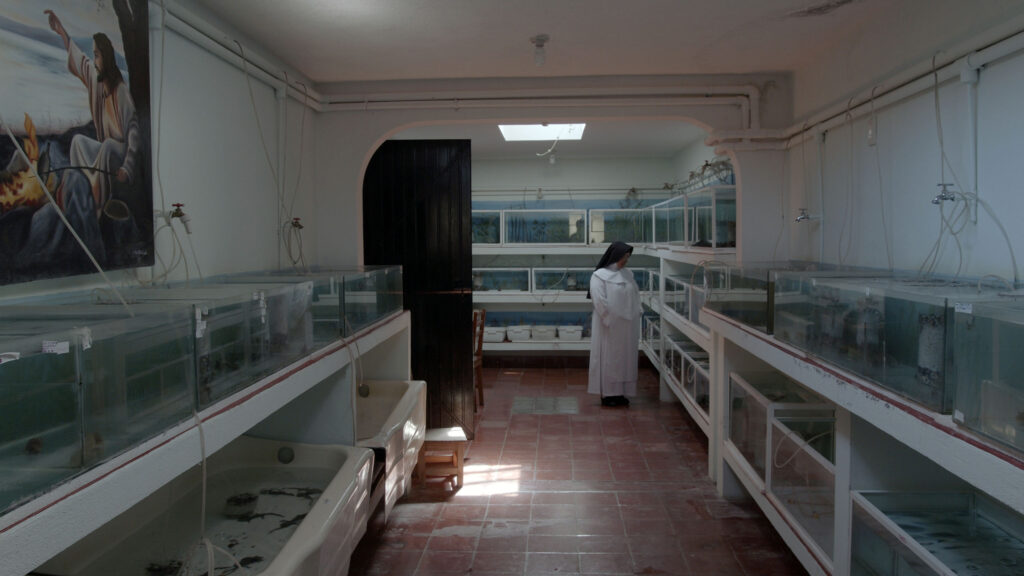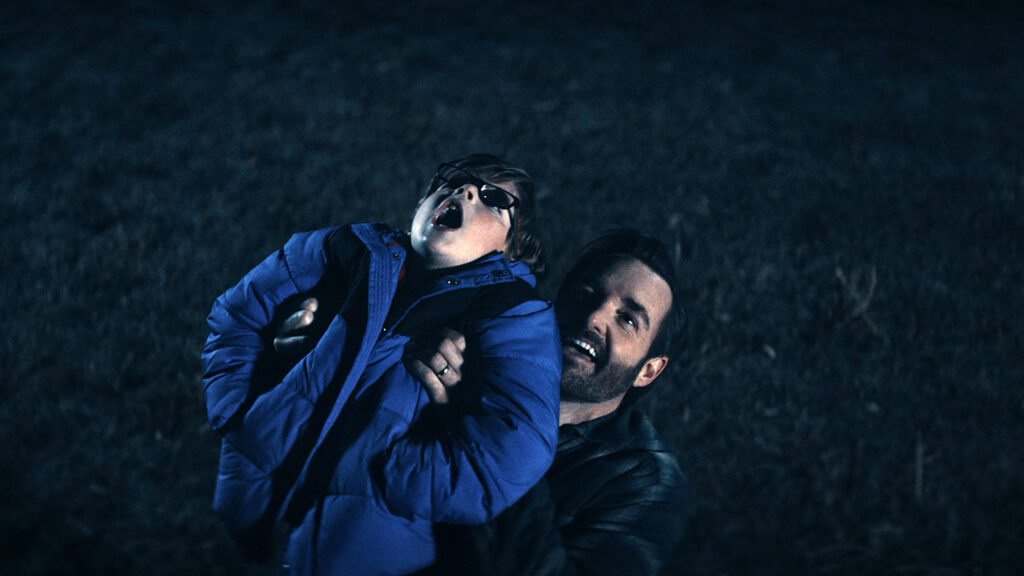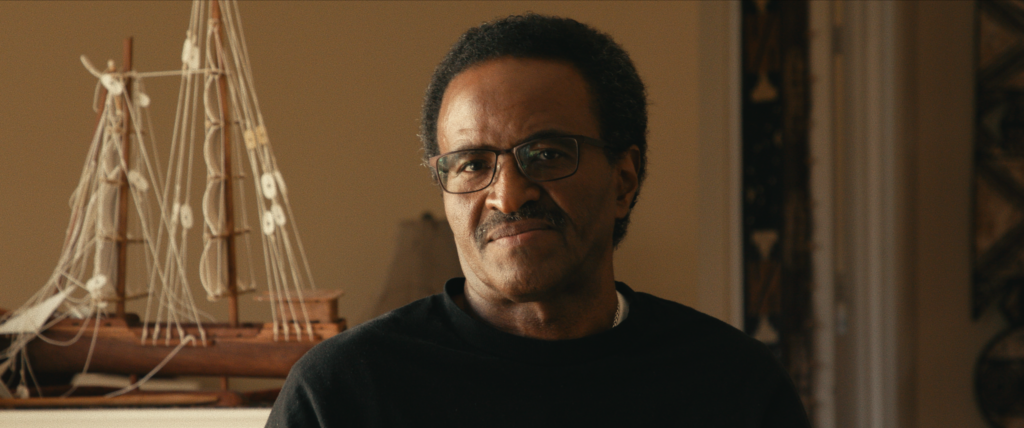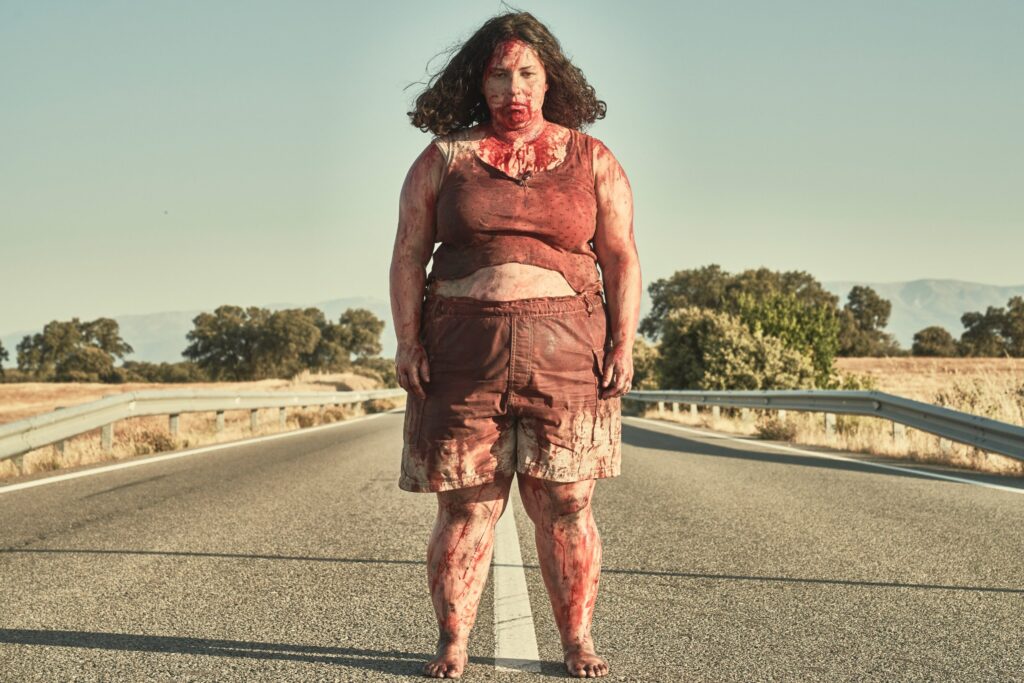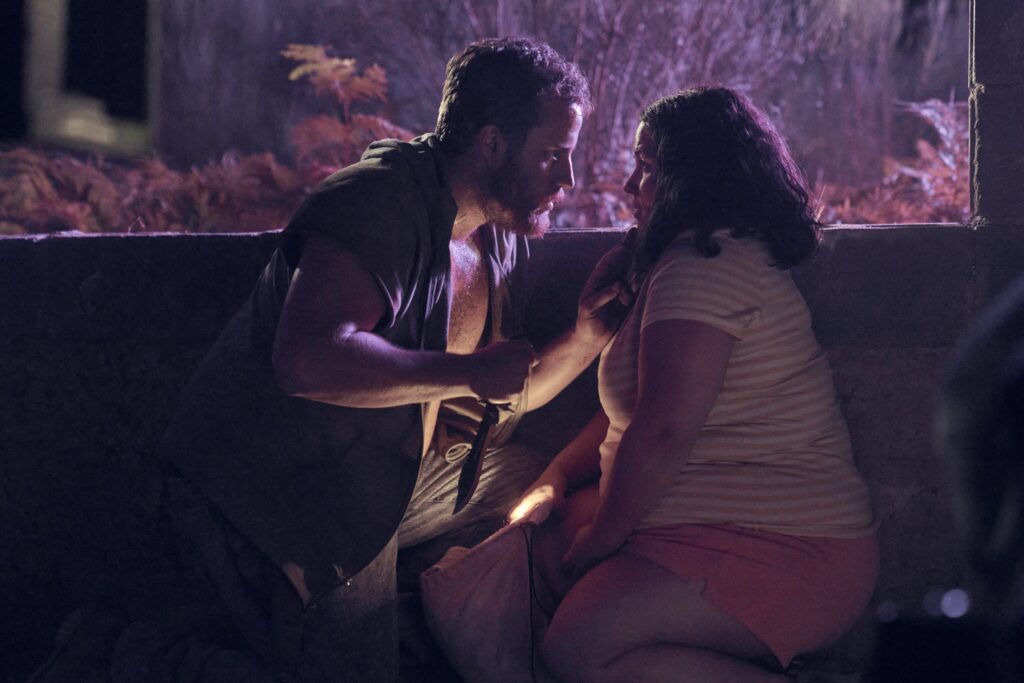January 27, 2023

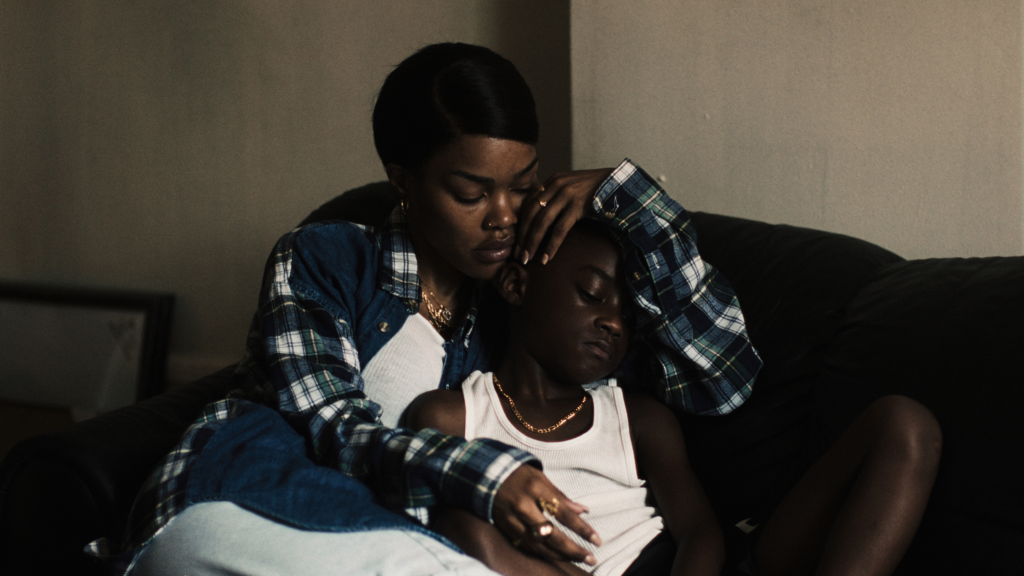
The following is a press release from the Sundance Film Festival:
The Sundance Film Festival, a program of the nonprofit Sundance Institute, returned back in person and across the country online for 2023. Whether you gathered in theaters or are joining us from home, the Festival offers the opportunity to be a part of the discovery of stories and artists that will inspire and entertain us for years to come. The 2023 Sundance Film Festival jurors and audiences have voted with the awards announced today during an event at The Ray Theatre in Park City and updated on Sundance Film Festival’s official social accounts. The award-winning films will screen in person and via the online Festival platform on Saturday, January 28, and Sunday, January 29. Tickets for all award-screening films are available beginning at 1:00 p.m. MT today.
The jury and audience-awarded prizes amplify the fearless and dynamic stories across sections, with Grand Jury Prizes awarded to A Thousand and One (U.S. Dramatic), Going to Mars: The Nikki Giovanni Project (U.S. Documentary), Scrapper (World Cinema Dramatic), and The Eternal Memory (World Cinema Documentary), and the NEXT Innovator Award presented by Adobe was awarded to KOKOMO CITY.
Voted on by the audience, Radical was granted the Festival Favorite Award. Audience Awards for films in competition were presented by Acura to The Persian Version (U.S. Dramatic) and Beyond Utopia (U.S. Documentary), and presented by United Airlines to Shayda (World Cinema Dramatic) and 20 Days in Mariupol (World Cinema Documentary). KOKOMO CITY won the audience award for NEXT.
“This year’s Festival has been an extraordinary experience,” said Joana Vicente, Sundance Institute CEO. “The artists that comprise the 2023 Sundance Film Festival have demonstrated a sense of urgency and dedication to excellence in independent film. Today’s award winners highlight our programs’ most impressive achievements in the current moment of cinematic arts. I hope you will join me in congratulating our winners, as well as thanking all artists across sections for sharing their stories with the Sundance community.”
“In addition to acknowledging our artists, I want to thank this year’s jurors for their time and thoughtful consideration,” added Kim Yutani, Sundance Film Festival Director of Programming. “Their efforts help contextualize our artists’ work beyond the Festival program and elevate their stories to new audiences around the globe. The winners themselves represent a diverse mix of bold storytelling, thought-provoking reflections, and critical representations of our world today.”
The awards announcement marks a key point of the 2023 Festival, where 111 feature-length and 64 short films — selected from 15,856 submissions — have been presented in Park City, Salt Lake City, and at the Sundance Resort, while over 75% of the feature films, plus Shorts and Indie Episodics, are available via the Festival’s online platform through Sunday, January 29.
This year’s jurors were: Jeremy O. Harris, Eliza Hittman, and Marlee Matlin for U.S. Dramatic Competition; W. Kamau Bell, Ramona Diaz, and Carla Gutierrez for U.S. Documentary Competition; Shozo Ichiyama, Annemarie Jacir, and Funa Maduka for World Cinema Dramatic Competition; and Karim Amer, Petra Costa, and Alexander Nanau for World Cinema Documentary Competition; Madeleine Olnek for the NEXT competition section; Destin Daniel Cretton, Marie-Louise Khondji, and Deborah Stratman for the Short Film Program Competition.
Feature film award winners in previous years include: Nanny, The Exiles, CODA, Summer Of Soul (…Or, When The Revolution Could Not Be Televised), Flee, Hive, Minari, Boys State, Epicentro, Yalda, A Night for Forgiveness, Clemency, One Child Nation, Honeyland, The Souvenir, The Miseducation of Cameron Post, I Don’t Feel at Home in This World Anymore, Weiner, Whiplash, Fruitvale Station, Beasts of the Southern Wild, Twenty Feet from Stardom, Searching for Sugarman, The Square, Me and Earl and the Dying Girl, Cartel Land, The Wolf Pack, The Diary of a Teenage Girl, Dope, Dear White People, The Cove, and Man on Wire.
The 2023 Sundance Film Festival awards are:
GRAND JURY PRIZES
The U.S. Grand Jury Prize: Dramatic was presented to A.V. Rockwell for A Thousand and One / U.S.A. (Director and Screenwriter: A.V. Rockwell, Producers: Eddie Vaisman, Julia Lebedev, Lena Waithe, Rishi Rajani, Brad Weston) — Convinced it’s one last, necessary crime on the path to redemption, unapologetic and free-spirited Inez kidnaps 6-year-old Terry from the foster care system. Holding on to their secret and each other, mother and son set out to reclaim their sense of home, identity, and stability in New York City. Cast: Teyana Taylor, Will Catlett, Josiah Cross, Aven Courtney, Aaron Kingsley Adetola. World Premiere. Available online.
Jury citation: Never have I seen a life so similar to my own rendered with such nuance and tenderness. I walked out of the theatre and wept in front of people I barely know because this film reached into my gut and pulled from it every emotion I’ve learned to mask in these spaces. As a jury we know how impossible it is to make work that is real, full of pain, and fearless in its rigorous commitment to emotional truth born of oppressive circumstances. It is our honor to award the U.S. Grand Jury Prize: Dramatic to A Thousand and One.
The U.S. Grand Jury Prize: Documentary was presented to Joe Brewster and Michèle Stephenson for Going to Mars: The Nikki Giovanni Project / U.S.A. (Directors and Producers: Joe Brewster, Michèle Stephenson, Producer: Tommy Oliver) — Intimate vérité, archival footage, and visually innovative treatments of poetry take us on a journey through the dreamscape of legendary poet Nikki Giovanni as she reflects on her life and legacy. World Premiere. Available online.
Jury citation: This film focuses on a singular, unapologetic voice, and through her story it captures the experience of the collective. The strong directorial vision illuminates the joy and the raw reality of the Black experience. Also it is fucking funny. The U.S. Grand Jury Prize: Documentary goes to Going to Mars: The Nikki Giovanni Project.
The World Cinema Grand Jury Prize: Dramatic was presented to Charlotte Regan for Scrapper / U.K. (Director and Screenwriter: Charlotte Regan, Producer: Theo Barrowclough) — Georgie is a dreamy 12-year-old girl who lives happily alone in her London flat, filling it with magic. Out of nowhere, her estranged father turns up and forces her to confront reality. Cast: Harris Dickinson, Lola Campbell, Alin Uzun, Ambreen Razia, Olivia Brady, Aylin Tezel. World Premiere. Available online.
Jury citation: A charming and empathetic film full of integrity and life. Scrapper is a poignant study on grief and how the protagonist attempts to shrink her world. Through a child’s eyes, we observe abandonment, detachment and coldness, delivered with love, humor and warmth. The jury was drawn by the honest and sincere performances, strong direction, playful cinematography, and impressive script. The authenticity and command of place and space by the filmmaker and her insistence in creating a world where pain and joy align perfectly delivered a story full of heart and soul. The World Cinema Grand Jury Prize: Dramatic goes to Scrapper.
The World Cinema Grand Jury Prize: Documentary was presented to Maite Alberdi for The Eternal Memory / Chile (Director and Producer: Maite Alberdi, Producers: Juan de Dios Larraín, Pablo Larraín, Rocío Jadue) — Augusto and Paulina have been together for 25 years. Eight years ago, he was diagnosed with Alzheimer’s disease. Both fear the day he no longer recognizes her. World Premiere. Available online.
Jury citation: This film opened our hearts by bringing us closer to the meaning of life and death, and the element that threads sense into all of it – love. Through a simple yet complex portrayal of a confinement, it brings us to the lives of these fascinating characters who make us wiser and more loving the longer we stay with them. The World Cinema Grand Jury Prize: Documentary goes to The Eternal Memory.
FESTIVAL FAVORITE AWARD
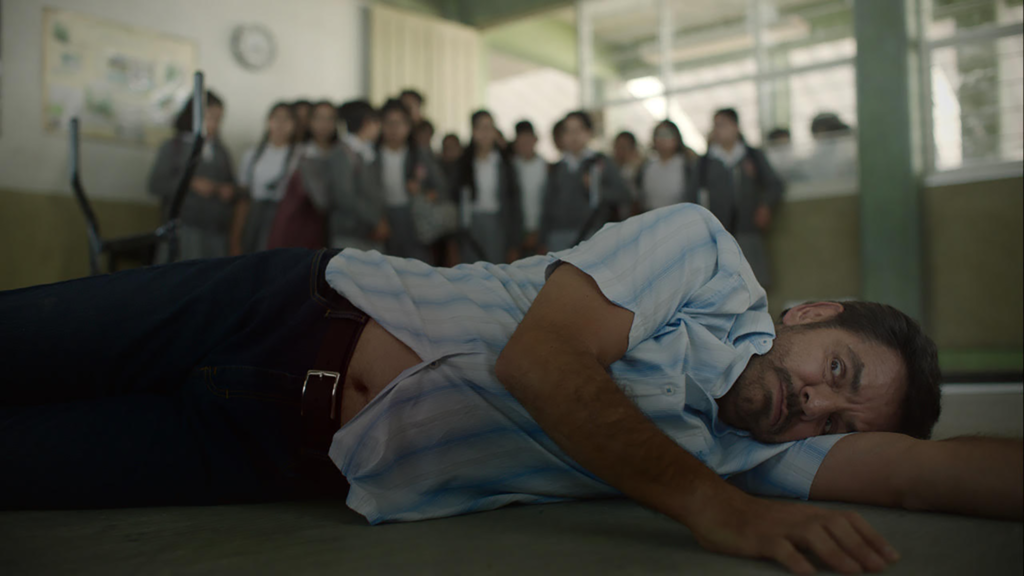
Selected by audience votes from the feature films that screened at the 2023 Sundance Film Festival, the Festival Favorite Award was presented to Radical / U.S.A (Director and Screenwriter: Christopher Zalla, Producers: Ben Odell, Eugenio Derbez, Joshua Davis) — In a Mexican border town plagued by neglect, corruption, and violence, a frustrated teacher tries a radical new method to break through his students’ apathy and unlock their curiosity, their potential… and maybe even their genius. Based on a true story. Cast: Eugenio Derbez, Daniel Haddad, Jenifer Trejo, Mia Fernanda Solis, Danilo Guardiola. World Premiere. Fiction. Available online.
AUDIENCE AWARDS
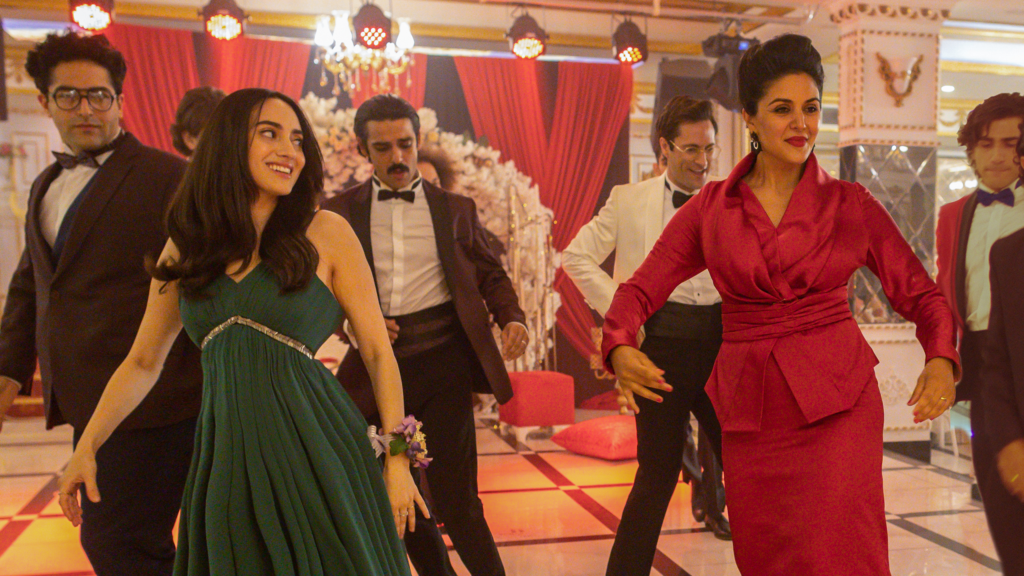
The Audience Award: U.S. Dramatic, Presented by Acura was awarded to The Persian Version / U.S.A. (Director, Screenwriter, and Producer: Maryam Keshavarz, Producers: Anne Carey, Ben Howe, Luca Borghese, Peter Block, Corey Nelson) — When a large Iranian-American family gathers for the patriarch’s heart transplant, a family secret is uncovered that catapults the estranged mother and daughter into an exploration of the past. Toggling between the United States and Iran over decades, mother and daughter discover they are more alike than they know. Cast: Layla Mohammadi, Niousha Noor, Kamand Shafieisabet, Bella Warda, Bijan Daneshmand, Shervin Alenabi. World Premiere. Available online.
The Audience Award: U.S. Documentary, Presented by Acura was awarded to Beyond Utopia / U.S.A. (Director: Madeleine Gavin, Producers: Jana Edelbaum, Rachel Cohen, Sue Mi Terry) — Hidden camera footage augments this perilous high-stakes journey as we embed with families attempting to escape oppression from North Korea, ultimately revealing a world most of us have never seen. World Premiere. Available online.
The Audience Award: World Cinema Dramatic, Presented by United Airlines was awarded to Shayda / Australia (Director, Screenwriter, and Producer: Noora Niasari, Producer: Vincent Sheehan) — Shayda, a brave Iranian mother, finds refuge in an Australian women’s shelter with her 6-year-old daughter. Over Persian New Year, they take solace in Nowruz rituals and new beginnings, but when her estranged husband re-enters their lives, Shayda’s path to freedom is jeopardized. Cast: Zar Amir Ebrahimi, Osamah Sami, Leah Purcell, Jillian Nguyen, Mojean Aria, Selina Zahednia. World Premiere. Available online.
The Audience Award: World Cinema Documentary, Presented by United Airlines was awarded to 20 Days in Mariupol / Ukraine (Director and Producer: Mstyslav Chernov, Producers: Michelle Mizner, Raney Aronson-Rath, Derl McCrudden) — As the Russian invasion begins, a team of Ukrainian journalists trapped in the besieged city of Mariupol struggle to continue their work documenting the war’s atrocities. World Premiere. Available online.
The Audience Award: NEXT, Presented by Adobe was awarded to KOKOMO CITY / U.S.A. (Director and Producer: D. Smith, Producers: Harris Doran, Bill Butler) — Four Black transgender sex workers explore the dichotomy between the Black community and themselves, while confronting issues long avoided. World Premiere. Documentary. Available online.
JURY AWARDS FOR DIRECTING, SCREENWRITING & EDITING
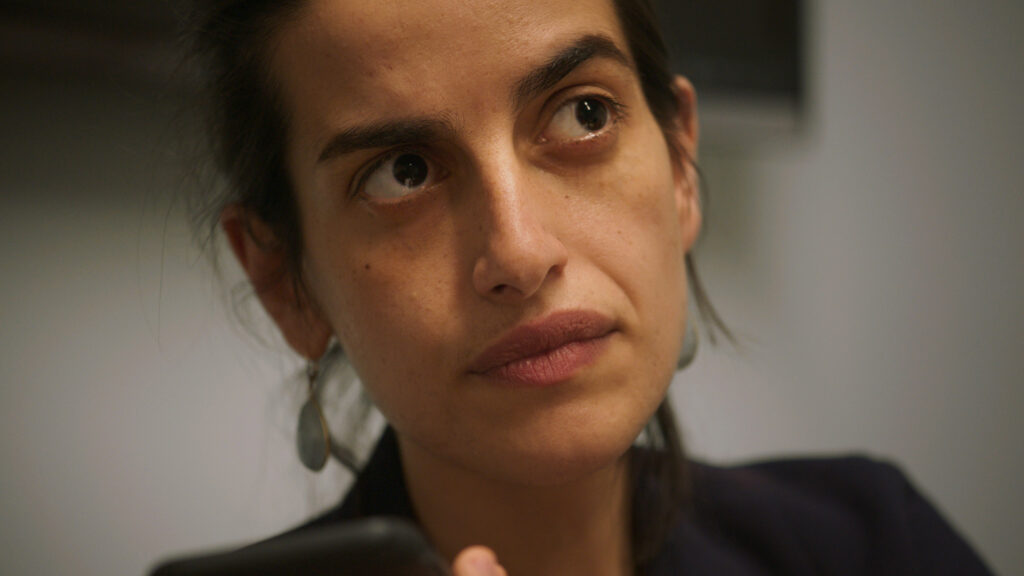
The Directing Award: U.S. Documentary was presented to Luke Lorentzen for A Still Small Voice / U.S.A. (Director and Producer: Luke Lorentzen, Producer: Kellen Quinn) — An aspiring hospital chaplain begins a yearlong residency in spiritual care, only to discover that to successfully tend to her patients, she must look deep within herself. World Premiere. Available online.
Jury citation: This film is a deep dive into grief and the complications of mourning. It has a rigorous and unflinching lens that holds steadfast to the cinematic language the director chose for the film. The Directing Award: U.S. Documentary goes to Luke Lorentzen, A Still Small Voice.
The Directing Award: U.S. Dramatic was presented to Sing J. Lee for The Accidental Getaway Driver / U.S.A. (Director and Screenwriter: Sing J. Lee, Screenwriter: Christopher Chen, Producers: Kimberly Steward, Basil Iwanyk, Andy Sorgie, Brendon Boyea, Joseph Hiếu) — During a routine pickup, an elderly Vietnamese cab driver is taken hostage at gunpoint by three recently escaped Orange County convicts. Based on a true story. Cast: Hiệp Trần Nghĩa, Dustin Nguyen, Dali Benssalah, Phi Vũ, Gabrielle Chan. World Premiere. Available online.
Jury citation: The jury was bowled over by this director’s singular vision that merged the grit of a Western crime film and the poetic imagery of Asian New Wave. This hybridized approach revealed the complexities of existing between cultures and evoked an enormous amount of empathy for its protagonist and the true story underneath it from this jury. The Directing Award: U.S. Dramatic goes to Sing J. Lee, The Accidental Getaway Driver.
The Directing Award: World Cinema Documentary was presented to Anna Hints for Smoke Sauna Sisterhood / Estonia, France, Iceland (Director: Anna Hints, Producer: Marianne Ostrat) — In the darkness of a smoke sauna, women share their innermost secrets and intimate experiences, washing off the shame trapped in their bodies and regaining their strength through a sense of communion. World Premiere. Available online.
Jury citation: A transcendental story of women that bring us into their bodies, their traumas and their healing. Tales of patriarchy that we have rarely seen on screen come together with cinematic beauty, humor, wisdom and refreshing self-awareness. The directing award goes to Anna Hints, Smoke Sauna Sisterhood.
The Directing Award: World Cinema Dramatic was presented to Marija Kavtaradze for Slow / Lithuania, Spain, Sweden (Director and Screenwriter: Marija Kavtaradze, Producer: Marija Razgute) — Dancer Elena and sign language interpreter Dovydas meet and form a beautiful bond. As they dive into a new relationship, they must navigate how to build their own kind of intimacy. Cast: Greta Grinevičiūtė, Kęstutis Cicėnas. World Premiere. Available online.
Jury citation: In this untraditional love story, we follow the journey of two individuals who pose the question: what is desire? Marija Kavtaradze’s expert direction guides her audiences to discover their own answer, which delightfully shifts as each act provokes greater interrogation. Kavtaradze is a poet and an expert weaver, intertwining scenes of provocative movement with more quiet, insightful moments rich in dialogue. It combines to deliver a drama that resonates long after the film ends; a tenderness that lingers in the minds and hearts of viewers. The Directing Award: World Cinema Dramatic goes to Marija Kavtaradze, Slow.
The Waldo Salt Screenwriting Award: U.S. Dramatic was presented to Maryam Keshavarz for The Persian Version / U.S.A. (Director, Screenwriter, and Producer: Maryam Keshavarz, Producers: Anne Carey, Ben Howe, Luca Borghese, Peter Block, Corey Nelson) — When a large Iranian-American family gathers for the patriarch’s heart transplant, a family secret is uncovered that catapults the estranged mother and daughter into an exploration of the past. Toggling between the United States and Iran over decades, mother and daughter discover they are more alike than they know. Cast: Layla Mohammadi, Niousha Noor, Kamand Shafieisabet, Bella Warda, Bijan Daneshmand, Shervin Alenabi. World Premiere. Available online.
Jury citation: We were impressed by the craft of this screenplay that wove together the lives of a fractured family over multiple generations with humor, candor, affection, and verve before surprising us all with the revelation of a family secret that healed past wounds. The Waldo Salt Screenwriting Award: U.S. Dramatic goes to Maryam Keshavarz, The Persian Version.
The Jonathan Oppenheim Editing Award: U.S. Documentary was presented to Daniela I. Quiroz for Going Varsity in Mariachi / U.S.A. (Directors: Alejandra Vasquez, Sam Osborn, Producers: James Lawler, Luis A. Miranda, Jr., Julia Pontecorvo) — In the competitive world of high school mariachi, the musicians from the South Texas borderlands reign supreme. Under the guidance of coach Abel Acuña, the teenage captains of Edinburg North High School’s acclaimed team must turn a shoestring budget and diverse crew of inexperienced musicians into state champions. World Premiere. Available online.
Jury citation: A joyful edit that carries the heart of the characters while still exploring difficult and sensitive issues in a delicate and beautiful way. We deeply care for our heroes and the spirit of life on the border. The Jonathan Oppenheim Editing Award: U.S. Documentary goes to Editor, Daniela I. Quiroz, Going Varsity in Mariachi.
SPECIAL JURY AWARDS
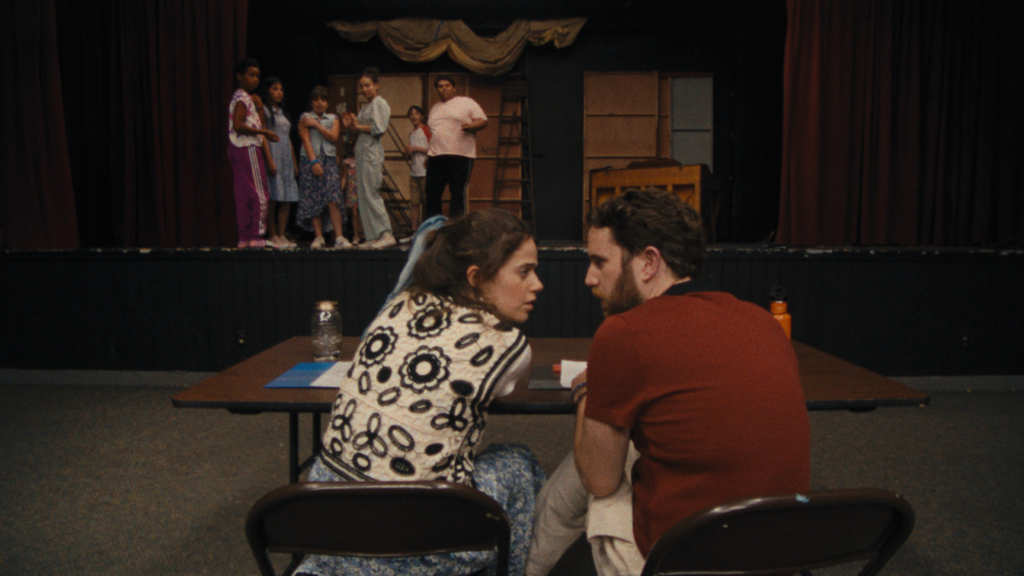
A U.S. Dramatic Special Jury Award: Ensemble was presented to the cast of Theater Camp / U.S.A. (Directors and Screenwriters: Molly Gordon, Nick Lieberman, Screenwriters: Noah Galvin, Ben Platt, Producers: Erik Feig, Samie Kim Falvey, Julia Hammer, Ryan Heller, Will Ferrell, Jessica Elbaum) — When the beloved founder of a run-down theater camp in upstate New York falls into a coma, the eccentric staff must band together with the founder’s crypto-bro son to keep the camp afloat. Cast: Molly Gordon, Ben Platt, Noah Galvin, Jimmy Tatro, Patti Harrison, Ayo Edebiri. World Premiere. Available online.
Jury citation: Creativity does not have to be a torturous, solitary endeavor–it often rarely is. A film is made with a community and those that celebrate that invite new communities to the worlds they have built. As a jury of theatre nerds who felt welcomed back to a place that feels like home it is our pleasure to award the U.S. Dramatic Special Jury Award: Ensemble to the cast of Theater Camp.
A U.S. Dramatic Special Jury Award: Creative Vision was presented to the creative team of Magazine Dreams / U.S.A. (Director and Screenwriter: Elijah Bynum, Producers: Jennifer Fox, Dan Gilroy, Jeffrey Soros, Simon Horsman) — An amateur bodybuilder struggles to find human connection as his relentless drive for recognition pushes him to the brink. Cast: Jonathan Majors, Haley Bennett, Taylour Paige, Mike O’Hearn, Harrison Page, Harriet Sansom Harris. World Premiere. Available online.
Jury citation: This immersive film’s relentless tension achieved through the rigorous marriage of light, camera movement, sound, and an overwhelming performance left us all disturbed, yet riveted. It will reverberate through audiences to much debate. The U.S. Dramatic Special Jury Award: Creative Vision goes to the creative team of Magazine Dreams.
A U.S. Dramatic Special Jury Award: Acting was presented to Lio Mehiel for Mutt / U.S.A. (Director, Screenwriter, and Producer: Vuk Lungulov-Klotz, Producers: Alexander Stegmaier, Stephen Scott Scarpulla, Jennifer Kuczaj, Joel Michaely) Jury citation:— Over the course of a single hectic day in New York City, three people from Feña’s past are thrust back into his life. Having lost touch since transitioning from female to male, he navigates the new dynamics of old relationships while tackling the day-to-day challenges of living life in between. Cast: Lío Mehiel, Cole Doman, MiMi Ryder, Alejandro Goic. World Premiere. Available online.
Jury citation: We were charmed, seduced, and compelled by this fresh new performer as we watched them navigating the intimate complexities of their everyday life and relationships in his search for acceptance. We award the U.S. Dramatic Special Jury Award: Acting to Lio Mehiel, Mutt.
A U.S. Documentary Special Jury Award: Clarity of Vision was presented to The Stroll / U.S.A. (Directors: Kristen Lovell, Zackary Drucker, Producer: Matt Wolf) — The history of New York’s Meatpacking District, told from the perspective of transgender sex workers who lived and worked there. Filmmaker Kristen Lovell, who walked “The Stroll” for a decade, reunites her community to recount the violence, policing, homelessness, and gentrification they overcame to build a movement for transgender rights. World Premiere. Available online.
Jury citation: It demonstrates an intimate look from the people who have the lived experience. It shows why it is important for the people who are members of the community to be at the helm of their stories. The U.S. Documentary Special Jury Award: Clarity of Vision goes to The Stroll.
A U.S. Documentary Special Jury Award: Freedom of Expression was presented to Bad Press / U.S.A (Directors: Rebecca Landsberry-Baker, Joe Peeler, Producers: Conrad Beilharz, Garrett F. Baker, Tyler Graim) — When the Muscogee Nation suddenly begins censoring its free press, a rogue reporter fights to expose her government’s corruption in a historic battle that will have ramifications for all of Indian country. World Premiere. Available online.
Jury citation: An essential story that is being told at a critical time featuring Indigenous people confronting their own power structures. It shines a light on the fact that even though freedom of expression is enshrined in the constitution, none of us can take it for granted. And it has the best ending line of any documentary. “My name is angel. And there’s a rainbow!” The U.S. Documentary Special Jury Award: Freedom of Expression award goes to Bad Press.
A World Cinema Documentary Special Jury Award: Creative Vision was presented to Fantastic Machine / Sweden, Denmark (Directors and Producers: Axel Danielson, Maximilien Van Aertryck) — From the first camera to 45 billion cameras worldwide today, the visual sociologist filmmakers widen their lens to expose both humanity’s unique obsession with the camera’s image and the social consequences that lay ahead. World Premiere. Available online.
Jury citation: For sending us on a journey to realize that the invention of image was perhaps one of the most important turning points of our recent history, reshaping radically our inner structure and sense of identity. In a time where everyone is the creator of their own narrative, through image, the film forces, everyone, even us filmmakers, to take a step back and reflect upon our intentions regarding the images we want to put out into the world. It is an artful, hilarious and terrifying homage to the importance of critical thinking. The World Cinema Documentary Special Jury Award: Creative Vision goes to Fantastic Machine.
A World Cinema Documentary Special Jury Award: Verite Filmmaking was presented to Against the Tide / India (Director and Producer: Sarvnik Kaur, Producer: Koval Bhatia) — Two friends, both Indigenous fishermen, are driven to desperation by a dying sea. Their friendship begins to fracture as they take very different paths to provide for their struggling families. World Premiere. Available online.
Jury citation: In a time where we are inundated with climate change headlines that seems to not be leading to much change, here is a film that places us in the point of view of two unforgettable protagonists. Their lives, hardships and humor reflect those of billions of people that are most affected by global warming and who are seeing their livelihoods being threatened in its essence. It reminds of the power of verite filmmaking to transport us into the lives of people who might be so distant from us and experience the challenges of their life circumstances first hand. The World Cinema Documentary Special Jury Award: Verite Filmmaking goes to Against the Tide.
A World Cinema Dramatic Special Jury Award: Creative Vision was presented to Sofia Alaoui for Animalia / France, Morocco, Qatar (Director and Screenwriter: Sofia Alaoui, Producers: Margaux Lorier, Toufik Ayadi, Christophe Barral) — A young, pregnant woman finds emancipation as aliens land in Morocco. Cast: Oumaïma Barid, Mehdi Dehbi, Fouad Oughaou. World Premiere. Available online.
Jury citation: In this original story of a woman making her way through a living and breathing landscape, we experience a world turned upside down, of humans in collision with nature and an uncovering of supernatural forces. We were delighted to discover in Sofia Alaoui’s first feature a subversive voice that tackles and interrogates the universe in what is ultimately a journey to simply discover oneself. The World Cinema Dramatic Special Jury Award: Creative Vision goes to Sofia Alaoui, Animalia.
A World Cinema Dramatic Special Jury Award: Cinematography was presented to Lílis Soares for Mami Wata / Nigeria (Director and Screenwriter: C.J. “Fiery” Obasi, Producer: Oge Obasi) — When the harmony in a village is threatened by outside elements, two sisters must fight to save their people and restore the glory of a mermaid goddess to the land. Cast: Evelyne Ily, Uzoamaka Aniunoh, Kelechi Udegbe, Emeka Amakeze, Rita Edochie, Tough Bone. World Premiere. Available online.
Jury citation: Through each frame, Lilis Soares’ expert lens mesmerized the jury. The richness of the black and white images, combined with the intricate and intimate camerawork of both the performances and natural landscape, elevated this folkloric tale to an intoxicating, visual experience. The World Cinema Dramatic Special Jury Award: Cinematography goes to Lílis Soares, Mami Wata.
A World Cinema Dramatic Special Jury Award: Best Performance was presented to Rosa Marchant for When It Melts / Belgium (Director and Screenwriter: Veerle Baetens, Screenwriter: Maarten Loix, Producers: Bart Van Langendonck, Ellen Havenith, Jacques-Henri Bronckart) — Many years after a sweltering summer that spun out of control, Eva returns to the village she grew up in with an ice block in the back of her car. In the dead of winter, she confronts her past and faces up to her tormentors. Cast: Charlotte De Bruyne, Rosa Marchant. World Premiere. Available online.
Jury citation: For delivering a piercing and resonant performance that haunted the jury for days. She employed a poetic nuance and complexity throughout her interpretation of the role, belying experience well beyond her years. This is an actor to follow and the jury looks forward to watching her command more screens. The World Cinema Dramatic Special Jury Award: Best Performance goes to Rosa Marchant, When it Melts.
NEXT INNOVATOR AWARD PRESENTED BY ADOBE
The NEXT Innovator Award presented by Adobe was presented to KOKOMO CITY / U.S.A. (Director and Producer: D. Smith, Producers: Harris Doran, Bill Butler) — Four Black transgender sex workers explore the dichotomy between the Black community and themselves, while confronting issues long avoided. World Premiere. Documentary. Available online.
Jury citation: For taking the traditional “talking heads” documentary structure and opening it up with the use of camera, sound, editing techniques, and imagery to create a dazzling journey with a fluidity that is entirely new. For a groundbreaking presentation of the lives of black trans women sex-workers in black and white, for taking us into their bedrooms and sharing in their incredible vulnerability as we hear their stories, all the while listening with her camera in a way that is electric and alive. For examining the injustice of a world that relegates so many women to a second-class citizenship and the oppressive nature of gender roles for everyone. For making perhaps the funniest movie Sundance has ever shown, and reminding us that the life or death struggle of these women is best understood in their defiant use of humor as a weapon. The NEXT wave of cinema is the profound use of comedy for serious subject matter, and for bringing us all together with laughter, in a hope that the love we come to feel for the people in this film can result in a larger social transformation. The NEXT Innovator Award goes to KOKOMO CITY directed by D. Smith.
SHORT FILM AWARDS PRESENTED BY SHUTTERSTOCK

Jury prizes for short filmmaking were awarded to:
The Short Film Grand Jury Prize presented by Shutterstock was awarded to When You Left Me On That Boulevard / U.S.A. (Director and Screenwriter: Kayla Abuda Galang, Producers: Alifya Ali, David Oconer, Udoy Rahim, Samantha Skinner) — Teenager Ly and her cousins get high before a boisterous family Thanksgiving at their auntie’s house in southeast San Diego in 2006. Cast: Kailyn Dulay, Melissa Arcaya, Elle Rodriguez, Whitney Agustin, Gina May Gimongala, Allan Wayne Anderson. World Premiere. Available Online.
Jury citation: From the first moment, we were fully on board for this rowdy ride. An uproarious take on extended family, irreverence and tradition with incredible attunement to details and frame. This directorial feat of freshness is our enthusiastic choice for the Sundance Grand Jury Short Film Prize goes to When You Left Me On That Boulevard
The Short Film Jury Award: U.S. Fiction presented by Shutterstock was awarded to Rest Stop / U.S.A. (Director and Screenwriter: Crystal Kayiza, Producers: Jalena Keane-Lee, Brit Fryer) — On a bus ride from New York to Oklahoma, Meyi, a young Ugandan-American girl, realizes her place in the world through her mother’s ambitious effort to reunite their family. Cast: Leeanna E. Tushabe, Alicia Basiima, Khalid Semakula, Robert Wanyama, Margaret Bisase, Olivia Nantongo. Available Online.
Jury citation: An exquisite song of the ordinary. We were struck by this unhurried portrayal of itinerancy and estrangement. To this deeply American story, we give the Best US Fiction Short Film Award to Rest Stop.
The Short Film Jury Award: International Fiction presented by Shutterstock was awarded to The Kidnapping of the Bride / Germany (Director and Screenwriter: Sophia Mocorrea, Producer: Sarah Valerie Radu) — Luisa from Argentina and Fred from Germany are confronted with their social roles at their wedding. The German tradition of kidnapping the bride shakes the couple’s equality. There is no room for love in this role-play of marriage. Cast: Rai Todoroff, David Bruning, Tatiana Saphir, Anne Kulbatzki, Michaela Winterstein, Niels Bormann. World Premiere. Available Online.
Jury citation: An elegant telling of a relationship caught between worlds. Directed with a honed sense of the ever-shifting dynamics and limits of gender and culture, this film reoriented us, drawing from the power of what’s felt and what’s left unsaid. The Best Intl Fiction Short Film Award goes to The Kidnapping of the Bride.
The Short Film Jury Award: Animation presented by Shutterstock was awarded to The Flying Sailor / Canada (Directors and Producers: Wendy Tilby, Amanda Forbis, Producer: David Christensen) — Two ships collide in a harbor, an explosion shatters a city, and a sailor is blasted skyward, where he soars high above the mayhem and toward the great unknown. Available Online.
Jury citation: This beautiful portrait of both an instant and a life lifted us out of our seats and took us on an emotional, innovative and explosive ride. The Best Animation Short Film Award goes to The Flying Sailor.
The Short Film Jury Award: Non-Fiction presented by Shutterstock was awarded to Will You Look At Me / China (Director, Screenwriter, and Producer: Shuli Huang) — As a young Chinese filmmaker returns to his hometown in search of himself, a long-overdue conversation with his mother drives them into a quest for acceptance and love. Available Online.
Jury citation: A complex personal journey of a son accepting his mother’s refusal. Enchanting, unpretentious images accompany an unflinching soundtrack to portray both a private self and universal misunderstanding. The Best Non-Fiction Short Film Award goes to Will You Look at Me.
A Short Film Special Jury Award, International: Directing presented by Shutterstock was awarded to AliEN0089 / Chile (Director and Screenwriter: Valeria Hofmann, Producers: Augusto Matte, Daniela Camino, Pascual Mena) — While a gamer uploads a testimonial video to denounce the harassment she suffers in a video game, a stranger enters her home and hacks her computer, blurring the boundaries between the real and virtual worlds. Cast: Mariana di Girolamo. World Premiere.
Jury citation: A frightening tale blending online gaming, contemporary politics, and genre elements to create a striking horror story. We give a Short Film Special Jury Award for Directing to AliEN0089.
A Short Film Special Jury Award, U.S: Directing presented by Shutterstock was awarded to The Vacation / U.S.A. (Director and Screenwriter: Jarreau Carrillo, Producers: Marttise Hill, Julius Pryor) — A Black man attempts to take a vacation. Cast: Drew Harris, Jarreau Carrillo, Ohene Cornelius, Trae Harris. Available Online.
Jury citation: An ingenious reinvention of the chamber-drama as a vehicle for neighborhood dreamers and schemers. For its comic timing and assured direction, we give a Short Film Special Jury Award for Directing to The Vacation.
PREVIOUSLY GRANTED 2023 SUNDANCE FILM FESTIVAL AWARDS
The 2023 Alfred P. Sloan Feature Film Prize, presented to an outstanding feature film about science or technology, was presented to The Pod Generation. The filmmakers received a $20,000 cash award from Sundance Institute with support from the Alfred P. Sloan Foundation.
The Sundance Institute | Amazon Studios Producers Award for Nonfiction went to Jess Devaney for It’s Only Life After All (Premieres).
The Sundance Institute | Amazon Studios Producers Award for Fiction went to Kara Durrett for The Starling Girl (U.S. Dramatic Competition).
The Sundance Institute | Adobe Mentorship Award for Nonfiction went to Mary Manhardt, and the Sundance Institute | Adobe Mentorship Award for Fiction went to Troy Takaki.
The Sundance Institute | NHK Award went to Olive Nwosu for Lady.
Sundance Institute | Stars Collective Imagination Awards went to Tamara Shogaolu for their project 40 Acres, Navid Khonsari, Vassiliki Khonsari, and Andres Perez-Duarte for their project BLOCK PARTY BODEGA, and Vanessa Keith for their project Year 2180.
The Sundance Film Festival®
The Sundance Film Festival, a program of the nonprofit, Sundance Institute, is the pre-eminent gathering of original storytellers and audiences seeking new voices and fresh perspectives. Since 1985, hundreds of films launched at the Festival have gone on to gain critical acclaim and reach new audiences worldwide. The Festival has introduced some of the most groundbreaking films and episodic works of the past three decades, including Fire of Love, Cha Cha Real Smooth, Flee, CODA, Passing, Summer Of Soul (…or, When the Revolution Could Not Be Televised), Clemency, Never Rarely Sometimes Always, Zola, O.J.: Made in America, On The Record, Boys State, The Farewell, Honeyland, One Child Nation, The Souvenir, The Infiltrators, Sorry to Bother You, Top of the Lake, Won’t You Be My Neighbor?, Hereditary, Call Me By Your Name, Get Out, The Big Sick, Mudbound, Fruitvale Station, Whiplash, Brooklyn, Precious, The Cove, Little Miss Sunshine, An Inconvenient Truth, Napoleon Dynamite, Hedwig and the Angry Inch, Reservoir Dogs and sex, lies, and videotape. The program consists of fiction and nonfiction features and short films, series and episodic content, emerging media, and performances, as well as conversations, and other events. The Festival takes place both in person in the state of Utah and online, connecting audiences across the U.S. to bold new artists and films. The 2023 Festival takes place January 19–29. Be a part of the Festival at Sundance Film Festival and follow the Festival at Facebook, Instagram, Twitter, and YouTube.
The Festival is a program of the nonprofit Sundance Institute. To date, 2023 Festival sponsors include: Presenting Sponsors – Acura, AMC Networks, Chase Sapphire®, Adobe; Leadership Sponsors – Audible, DIRECTV, Netflix, Omnicom Group, Shutterstock, Stacy’s® Pita Chips, United Airlines, XRM Media; Sustaining Sponsors – Canada Goose, Canon U.S.A., Inc., DoorDash, Dropbox, World of Hyatt®, IMDb, Lyft, MACRO, Rabbit Hole Bourbon & Rye, Stanley, University of Utah Health, White Claw Hard Seltzer; Media Sponsors – IndieWire, Los Angeles Times, NPR, Variety, Vulture, The Wall Street Journal. Sundance Institute recognizes critical support from the State of Utah as Festival Host State. The support of these organizations helps offset the Festival’s costs and sustain the Institute’s year-round programs for independent artists. festival.sundance.org
Sundance Institute
As a champion and curator of independent stories, the nonprofit Sundance Institute provides and preserves the space for artists across storytelling media to create and thrive. Founded in 1981 by Robert Redford, the Institute’s signature Labs, granting, and mentorship programs, dedicated to developing new work, take place throughout the year in the U.S. and internationally. Sundance Collab, a digital community platform, brings a global cohort of working artists together to learn from each other and Sundance Advisors and connect in a creative space, developing and sharing works in progress. The Sundance Film Festival and other public programs connect audiences and artists to ignite new ideas, discover original voices, and build a community dedicated to independent storytelling. Sundance Institute has supported and showcased such projects as Summer of Soul (…or, When the Revolution Could Not Be Televised), CODA, Flee, Passing, Clemency, Never Rarely Sometimes Always, Zola, On The Record, Boys State, The Farewell, Honeyland, One Child Nation, The Souvenir, The Infiltrators, Sorry to Bother You, Won’t You Be My Neighbor?, Hereditary, Call Me By Your Name, Get Out, The Big Sick, Mudbound, Fruitvale Station, City So Real, Top of the Lake, Between the World & Me, Wild Goose Dreams and Fun Home. Join Sundance Institute on Facebook, Instagram, Twitter, and YouTube.


